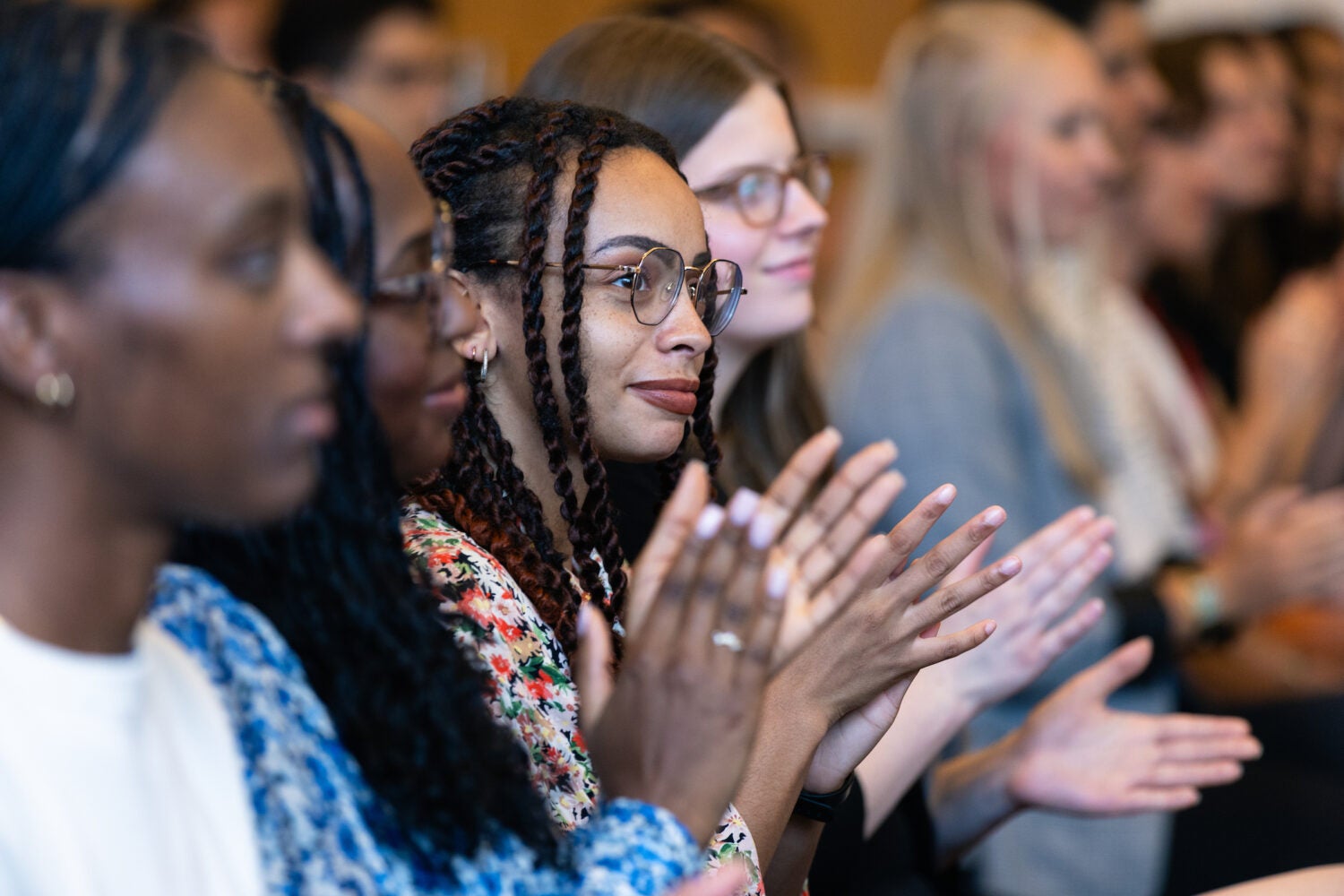When third-year Harvard Law School student Alejandro Castro ’26 was growing up, he never imagined attending Harvard Law School would be possible. In fact, Castro, a first-generation college graduate, never thought any law school, or college, was in his future.
“When I was younger, I didn’t think college was in the cards for me, let alone law school. It was expensive and I didn’t have much money,” admitted Castro while speaking at the 9th annual First Class Celebration & Reception. “But here’s the thing: My parents never doubted me, not once. Whatever I wanted to pursue, they encouraged me, they pushed me, they supported me.”
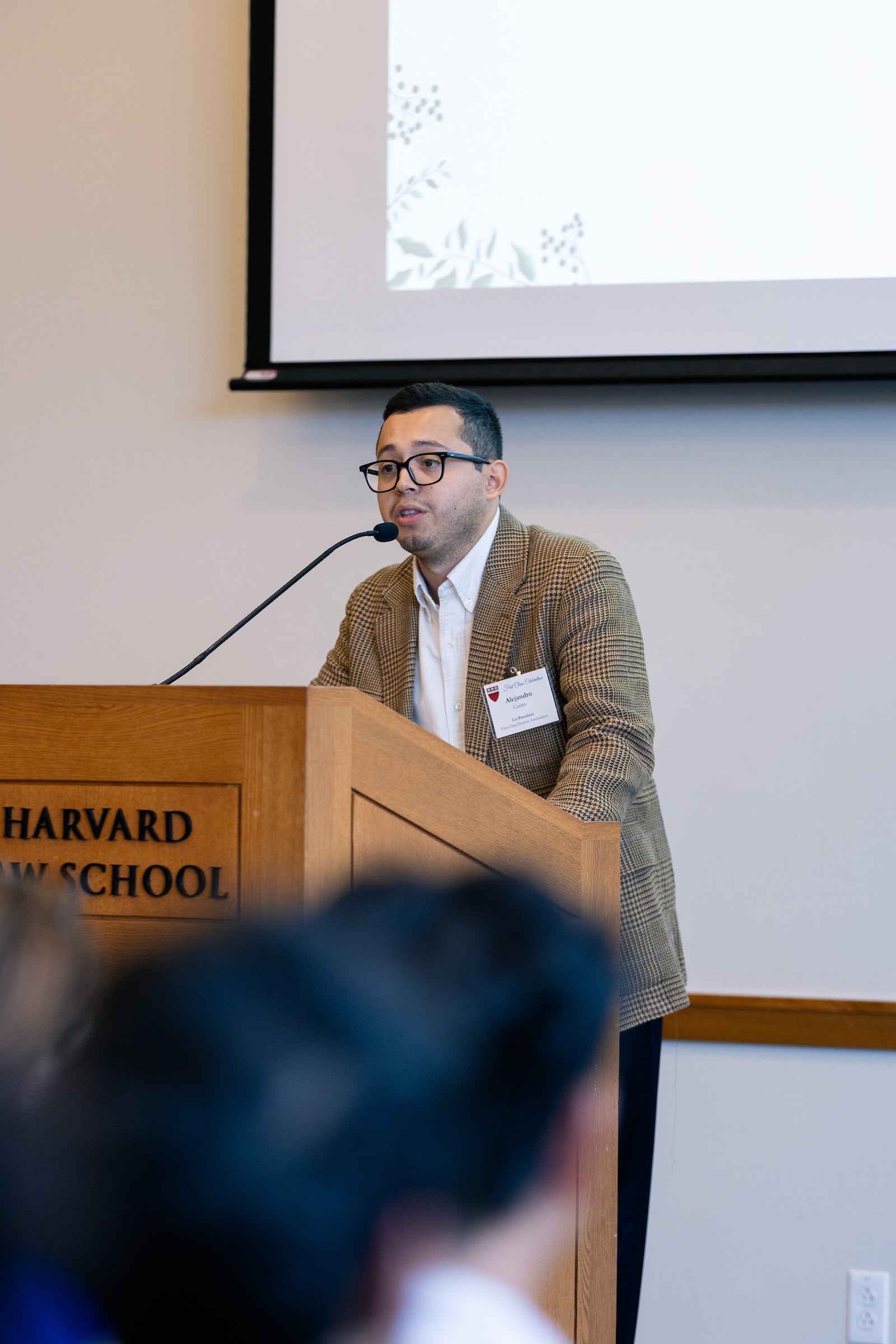
Created by Harvard Law students in 2017, First Class is a student-run organization designed to foster a community of support for first-generation college students and students from low-income backgrounds.
Castro, the organization’s incumbent co-president, delivered succinct advice to a near-capacity audience of first-year law students on campus Thursday.
“Remember that you are not alone,” said Castro. “We are here because of the people who support us, who believed in us, and refused to let us give up … They don’t disappear just because you step into the classroom.”
Castro also encouraged his peers and fellow first-generation students to support one another before concluding with a simple reminder to audience members.
“This school is lucky to have you,” he said. “Sometimes it’s easy to forget that, but it’s true.”
Moderated by Monica Monroe, the assistant dean of the Office of Community Engagement, Equity, and Belonging and interim Dean of Students, this year’s gathering also featured remarks by Dean John Goldberg and Professor I. Glenn Cohen ’03, faculty director of the Petrie-Flom Center for Health Law Policy, Biotechnology, and Bioethics.
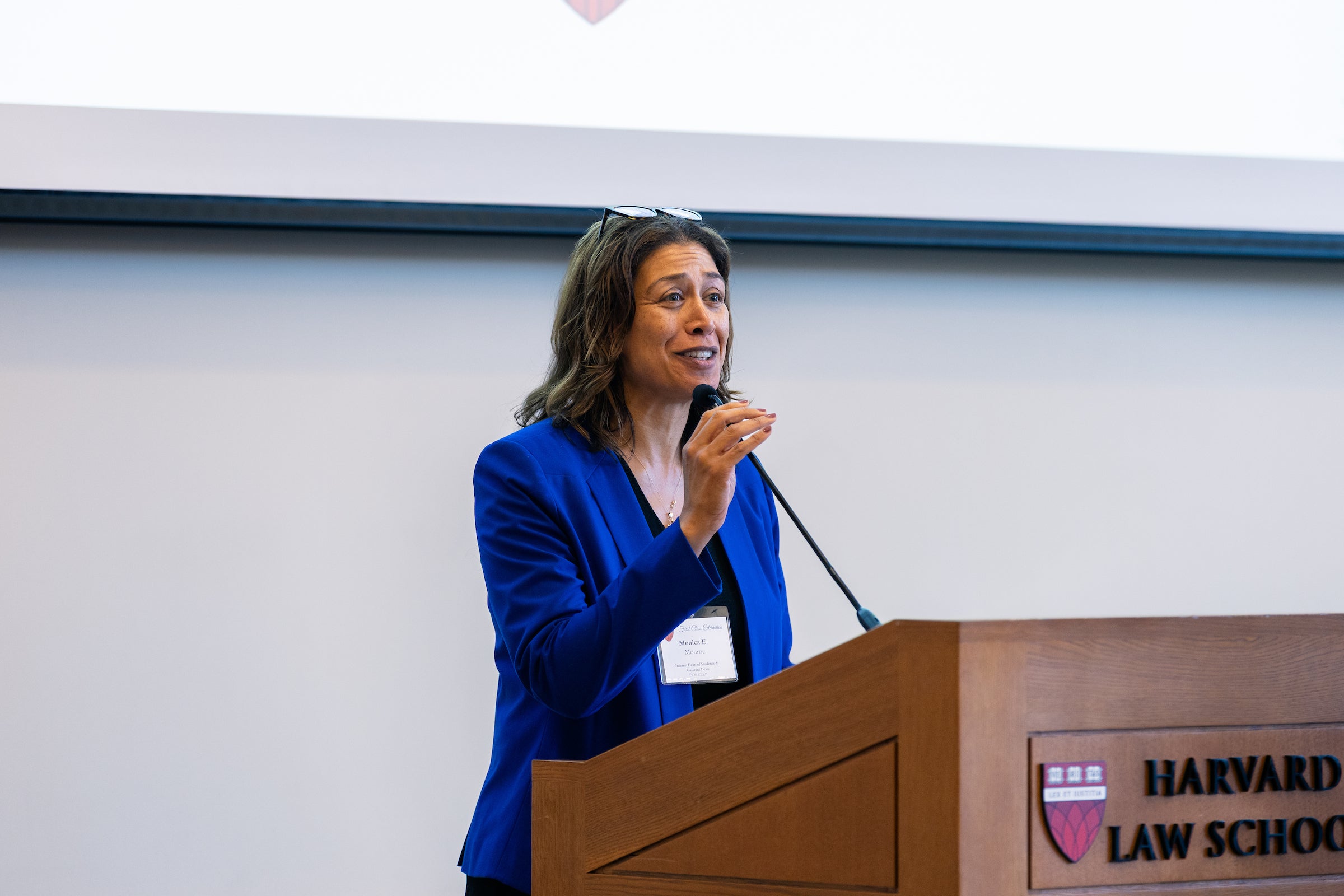
Before introducing Castro, Monroe shared how personal experiences have helped her better understand the importance of support resources for incoming students.
“As a first-generation college and first-generation law student who experienced financial struggles, I can attest from my own experience how important it is to be in community,” said Monroe. “And I know how supportive systems such as First Class … can be for an incoming student.”
At the outset of his remarks, Goldberg was quick to praise the student organization and the resources it provides Harvard Law students.
“First Class is a fantastic organization and I’m here today, in part, to celebrate your membership in it and to express my gratitude for the invaluable work that it does in helping to ensure that our school is a welcoming and supportive place for all of our students,” said Goldberg.
“I hope that you really do take advantage of all that First Class has to offer,” he continued. “At the same time, I invite you to embrace the fact that you are also Harvard Law students, plain and simple. All who are here tonight share a bond, yet at the same time, you are members of the larger HLS community.”
After recalling some of his own experiences as a nascent J.D. candidate, Goldberg delivered a reassuring message to any students in attendance experiencing self-doubt.
“I’m going to state the obvious: You have already proven, beyond a reasonable doubt — by excelling in your studies, and by doing all the amazing things that you’ve done — that you belong here,” he said. “This is your school as much as it is anyone else’s, and I hope you really take that to heart.”
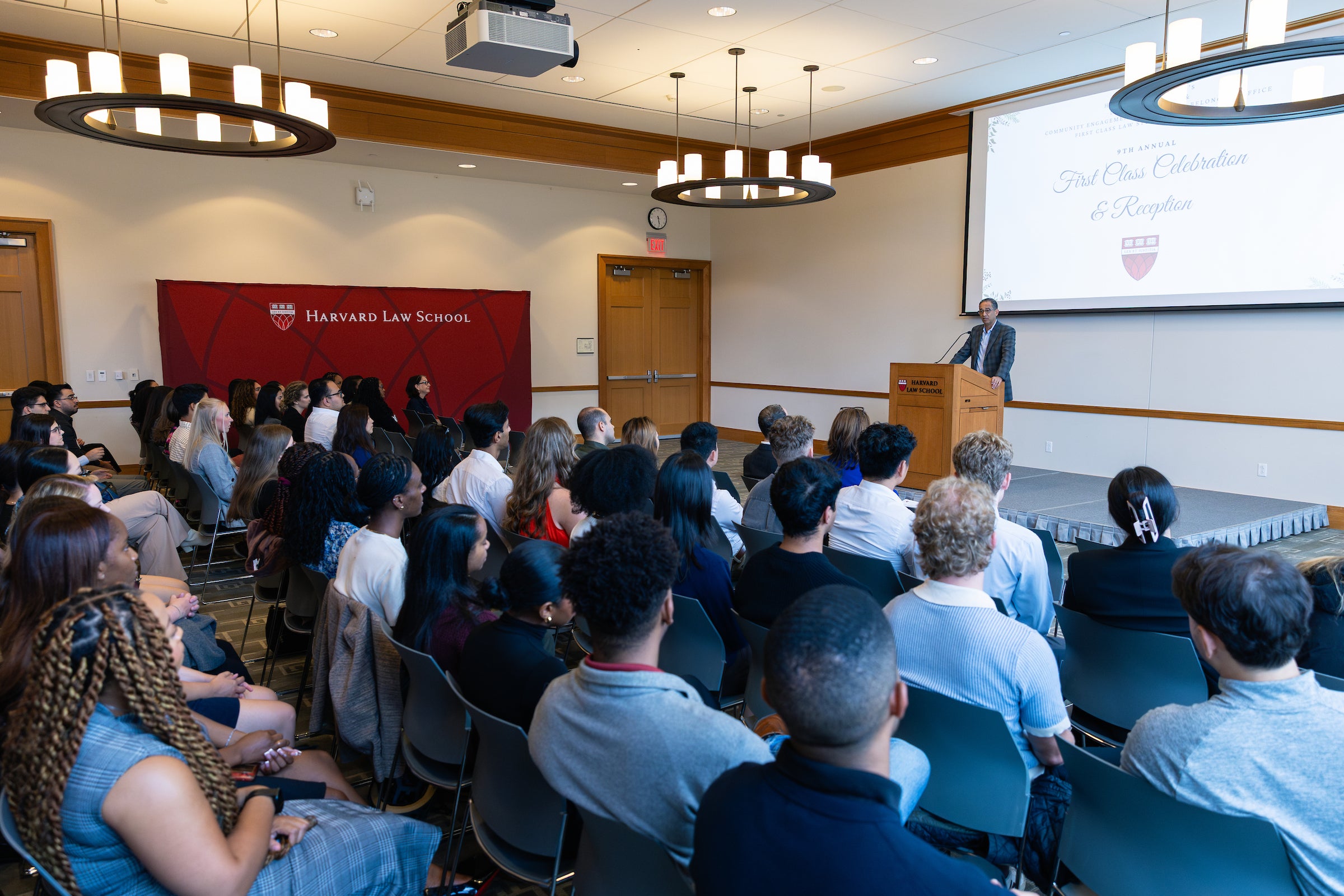
Cohen, a Harvard Law professor, alumnus, and first-generation college and law student, began with a brief audience exercise.
“First thing I wanted to say is — repeat after me — ‘I belong here.’ Ready? ‘I belong here.’ It’s one thing to hear it. It’s something very different to say it. And something still different to believe it,” said Cohen. “Part of the goal is, by the end of this week, or the end of this month, or hopefully at least by the end of three years, you come to believe it.”
In recounting how his background shaped his perspective as a student, Cohen spoke frankly about the unique personal challenges first-generation law students often encounter and strategies for overcoming them, including how to respond to familial expectations.
“Your family worked really hard for you to be here, but it’s your life … something you have to face, and really recognize, is that your life is your own,” said Cohen. “Your family is a center of gravity, and they have a major gravitational pull on you. But you’re entering a period of time in your life when you need to think deeply about what it is that you want. And, in some instances, that means diverging from what your family wants.”
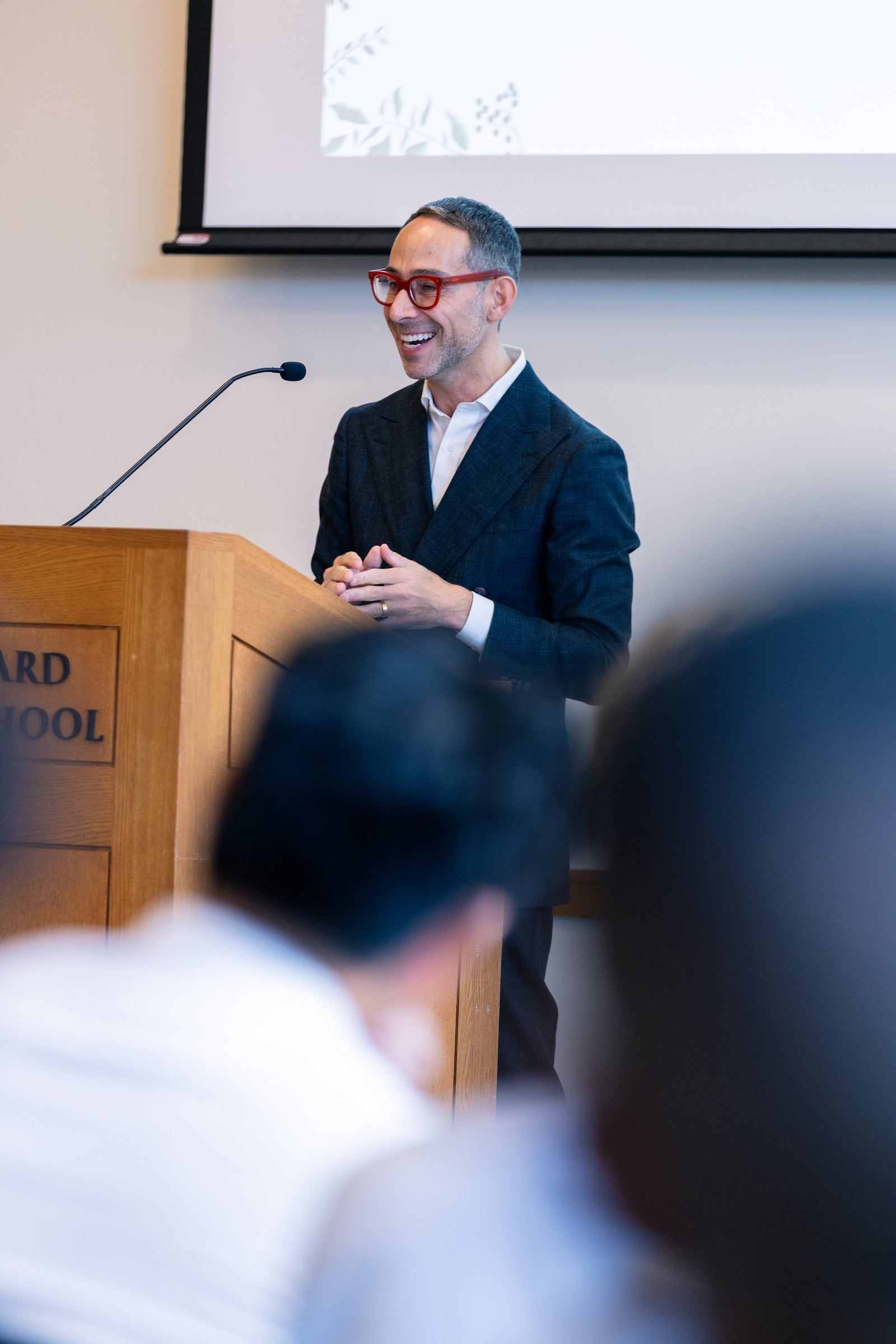
Cohen concluded by emphasizing the importance of approaching interactions with classmates from different backgrounds with respect and patience.
“There’s a reciprocal set of obligations here. You have to be open to learn about the lives of people around you, but also sometimes teach about your own life,” said Cohen.
“We have to go into these kinds of conversations with the right attitude — one of fellowship, one of generosity, indeed, maybe I’ll even say, love for those around us, with genuine curiosity and with charity of spirit,” he said.
Want to stay up to date with Harvard Law Today? Sign up for our weekly newsletter.
